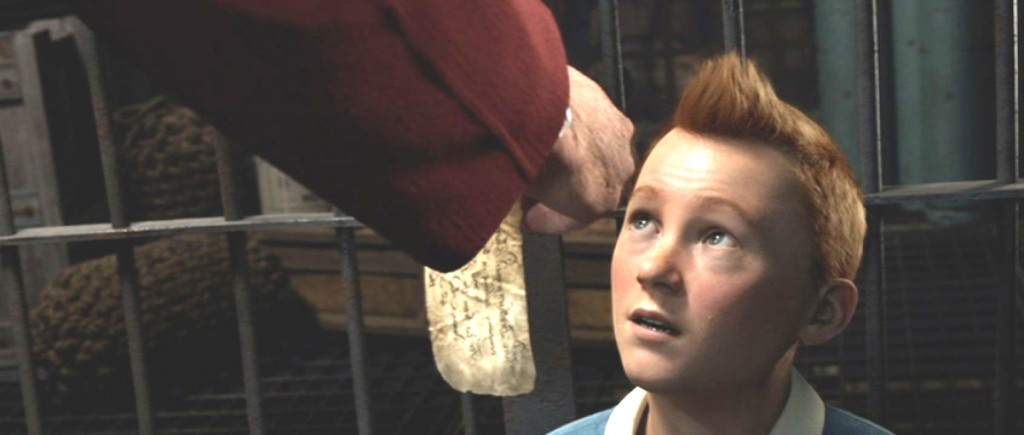Spielberg: The Adventures of Tintin part 4
Tintin is captured by some roughnecks and brought to, not the Unicorn but another ship, a modern ship, the Karaboudjan. I was kind of hoping that “Karaboudjan” was an Armenian word for “unicorn” or some other mythological creature, but alas no, it is merely a darkly romantic nonsense word meant to evoke Mideastern intrigue. Since our protagonist has been shoved into a crate for his journey to the Karaboudjan, Spielberg temporarily shifts the narrative’s focus to Tintin’s avatar Snowy, who, in another physical-comedy-laden chase scene, follows the crate to the docks and thence on board the ship.
Tintin is placed in a cage in the ship’s hold and interrogated by Sakharine, who apparently has hired this vessel. Again, Sakharine and Tintin almost see eye to eye, the boy adventurer and the grown-up obsessive. Sakharine has one scroll (from his own Unicorn model), Tintin has lost his (to the pickpocket), Sakharine now needs Tintin (his younger self) to find a third scroll.
Sakharine is Hook to Tintin’s Peter, two sides to the same coin, or the same person on different sides of the hill. The boy who seeks adventure will eventually become a desperate, grasping pirate — unless he never grows up, which is, of course, the secret to Tintin’s enduring popularity: Tintin doesn’t age, doesn’t develop, doesn’t seek out romantic love or family or property. He is always a boy, without responsibility, not even to his dog. He’s without parents, without a childhood even, he seems to have simply emerged into his world as a fully-formed prepubescent asexual teenager, old enough to drive or pilot a plane or shoot a gun, but not old enough to yearn toward permanence. No wonder Spielberg was drawn to him, at his heart Spielberg has always been most comfortable in the role of the 15-year-old boy. He moved past his boyish obsessions and went on to create fully mature works like Schindler’s List and Munich, but you can sense his glee in being able to retreat back into the wholly imaginary world of Tintin: he’s Peter Pan without the tragedy.
